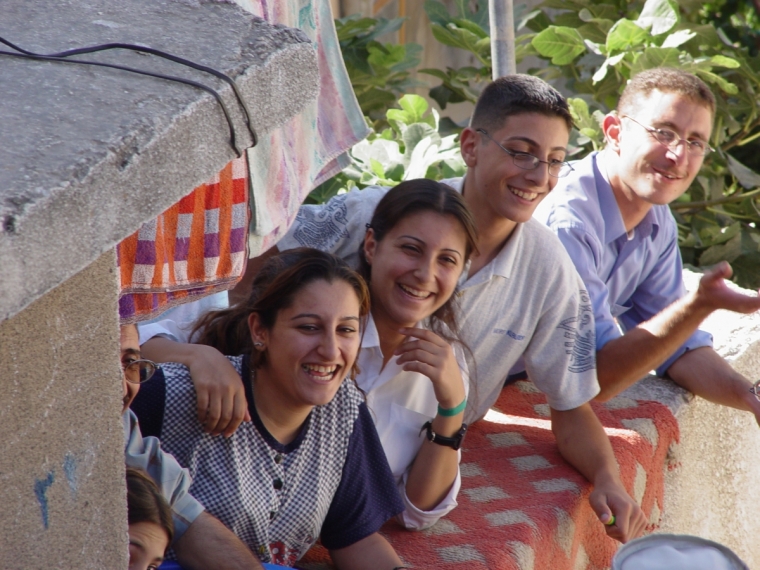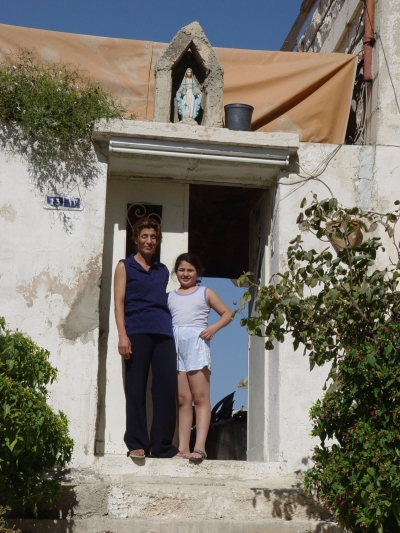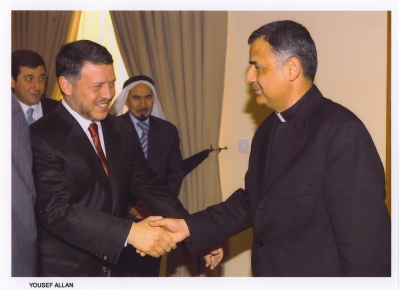Jordanian Christian: No problems until radical Islamists 'brainwashed young'

ZARQA, Jordan (Christian Examiner) -- As a youngster, Nabeeh Abbassi remembers marching to school in the military camp where his father was stationed.
His was one of three Christian houses in a section where 30 Muslim homes were also set aside as housing for soldiers and their families.
"There were no issues at all," Abbassi, 51, said of growing up as a Christian in a predominantly Muslim Middle Eastern country in the 1960s-70s.
"There were no radical groups," he paused, remembering when friends would spend the night -- and since Muslims pray five times a day -- the softspoken man said he wouldn't blink as neighbors spread a small prayer carpet in his family's home to observe Sal?t.

"What was happening at that time was that religion was a relationship between you and God," Abbassi said. "Never was it a dividing factor and in day-to-day activities families loved each other and it never bothered us that some were Christian and some were Muslim."
An evangelical scholar and pastor, Dr. Abbassi is the former president of the Jordan Baptist Convention and for a while was the provost and a professor at Jordan Evangelical Theological Seminary in Amman. He is a graduate of Dallas Theological Seminary and in the United States for a year-long sabbatical.
Three years ago, in Jordan, Abbassi founded and became the general director of the Arab Center for Consulting and Training Services (ACCTS), an organization focused on encouraging the growth of the global Arab Christian community by partnering with Christian and non-Christian communities in Jordan and Arab countries to build holistic communities by blending cultures and training future leaders.
Abbassi mused that most of his childhood friends that he grew up with are Muslim. "We would stick with each other regardless of our backgrounds."
With regret heavy in his voice, Abbassi –- born in the same city as the militant Islamist who ran a paramlitary training camp in Afghanistan during the Iraq War, Al Musab al-Zarqawi – said the difference between then and now is that radical Islam began growing and "the Islamic Brotherhood started to build a hatred that distinguished between families."
Even the dress code for Muslims was different back then, he remembers. Not more conservative, for example, but less, with women not required to be fully covered.

This extremism has ushered in a period of digression of Arab "culture and civilization," Abbassi fears – and like Jordan's Queen Rania said in an address to world leaders meeting in Dubai in early February, means there is now a "philosophical" as well as "military" war.
"ISIS has been able to penetrate the educational system through the mosque" in some countries, Abbassi said, noting where the education systems are controlled by the "Muslim Brotherhood, they were planning to brainwash society."
"If you look at the impact, they were able to reshape the mind of the younger generation, and you now have leaders that have been reshaped through the years the way they would like to refocus Islam through them – and the Caliphate has now become their desire and hope," Abbassi said.
The resulting terror brought about by radical Islam through the violent activities of ISIS is a "wake up call" as countries in the Middle East see the "danger" of allowing young persons to walk down that road, Abbassi said.
The Arab world was rocked with the recent deaths of a beloved Jordanian pilot – who was Muslim, Abbassi said, and with the weekend release of a video by Islamic State terrorists beheading 21 Egyptians who were Coptic Christians captured in Lybia.
Abbassi said he supports Jordan's King Abdullah's resolve to pursue ISIS and believes further acts of war are justified in Romans 13: 1-5.
"I encourage people to pray for their governments," Abbassi said. He also said when soldiers are "God's servants" they are being used for good, and "they do not carry the sword without a purpose."
In fact, the son of a soldier said if he had not had such a strong call to serve in the ministry, he would gladly "consider it an honor to serve in his father's footsteps" as a soldier in the Jordanian army.
And with unashamed patriotism ringing proudly – even from the U.S. where he keeps in touch with events back home -- Abbassi boasts of King Abdullah.
"We as Jordanians are very proud of the stand that His majesty took," Abbassi said. "He did not disappoint us; he responded to the call. We have seen some weak leadership worldwide regarding this and it's about time somebody took some leadership ... and we are proud of him for doing this.
"And we are praying for him that God would give him success," Abbassi said. "And we know it's teamwork and we are hoping that they would build a larger and larger coalition. We need our allies to continue to finish it to the end."
RELATED STORIES:
Iraqi Christian child asks God to 'forgive' ISIS
Prince Charles praying about 'agonizing situation' of Christians in Middle East
ISIS hostage Kayle Mueller confirmed dead: 'I will always seek God,' she wrote